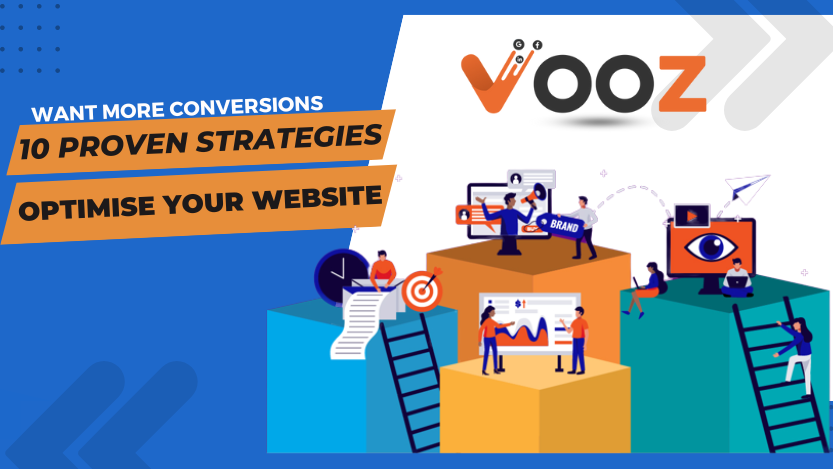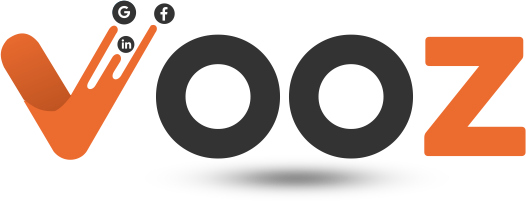
In today’s digital age, having a website is essential for any business or organisation looking to establish an online presence. However, simply having a website is not enough.
To be successful online, you need to make sure that your website is visible and easily discoverable by search engines and your target audience. This is where Strategies to Optimise Website come into play.
You can improve website visibility, attract more traffic, and reach your target audience more effectively. In this article, we will outline 10 essential steps to optimise your website for improved search engine rankings and online success.
1. Strategy One: Keyword Researching
Keyword research is a critical first step in any successful SEO strategy. It involves identifying relevant keywords and phrases that people use to search for information related to your business, products, or services.
There are various tools and techniques available to conduct keyword research. One popular method is to use Google’s Keyword Planner, a free tool that allows you to see the search volume and competition level of specific keywords and related phrases.
By identifying relevant keywords and incorporating them strategically into your website’s content and metadata, you can improve your website’s relevance, visibility, and ranking for relevant search queries.
2. Strategy Two: Optimising Title Tags
Here comes another essential step in your on-page SEO development, a title tag is an HTML element that appears in the browser’s title bar and serves as the headline for your web page in search engine results pages (SERPs).
Optimising your title tags involves creating unique and descriptive titles that accurately reflect the content on your web pages and include relevant keywords. By doing so, you can improve your website’s relevance and rank for specific search queries.
It is one of the first things that a user sees when they search for a particular topic, and it plays a significant role in determining whether or not they click through to your website.
3. Strategy Third: Creation of Quality Content
The impact of quality content on on-page SEO cannot be overstated. Content is the backbone of your website, and it plays a critical role in attracting and retaining visitors, improving your website’s relevance and authority, and ultimately, driving conversions.
By providing high-quality content that is engaging and informative, you can increase dwell time, which can improve your website’s search engine rankings.
Apart from all that, quality content that is well-structured, easy to read, and visually appealing can enhance the user experience.
The Complete Guide to Off-Page SEO: Techniques and Subdivisions
4. Strategy Four: Maintaining Website Speed
The speed at which your website loads can have a significant impact on user experience, bounce rates, and search engine rankings. Slow-loading websites can frustrate users, leading to high bounce rates and a negative impact on search engine rankings.
To maintain the speed of your website, try compressing the images, minimise HTTP requests, use caching to reduce the load time of your web pages, and optimise your website’s code by minifying CSS, JavaScript, and HTML files.
Website speed is a critical factor in on-page SEO success, and it’s important to regularly monitor and optimise your website speed to provide the best user experience possible.
5. Strategy Fifth: Writing Compelling Meta Description
Another major part of On-Page SEO development is taken care of by your website’s meta description over the internet. A meta description is a short summary of your web page that appears in search engine results pages. It gives users a brief idea of what they can expect from your web page and its influences. Their decision to click on your link.
Some best practices to be on top of your meta descriptions can include relevant keywords, value content, unique representation, and the addition of a Call To Action (CTA).
6. Strategy Sixth: The Optimisation of Images
Images can significantly enhance the visual appeal of a website and improve the user experience. However, large and unoptimized images can slow page load times, negatively impacting the user experience and search engine rankings.
So, the optimisation of images plays quite an important role in on-page SEO. It helps one’s website to grow over the internet.
Some of the benefits this optimization provides are faster loading time and improved user experience. It’s a better search engine ranking for your website.
7. Strategy Seventh: The Optimisation of Headings and Subheadings
Optimising headings and subheadings is another important aspect of on-page SEO. Headings and subheadings are used to organise content on a page, making it easier for users to read and understand.
Search engines also use headings to understand the structure and context of a page. Which can help improve its visibility in search results. So determining those is one of the best things that a marketer can do.
Use of descriptive language, use of H1 for the main title, H2-H6 for headings, and using keywords in headings are some of the best practices to inculcate in your marketing pitches.
8. Strategy Eighth: Conductivity of Structured URL
A URL, or uniform resource locator, is the web address that appears in the browser’s address bar. Optimising URLs can help search engines understand the content of a page. It can also make it easier for users to remember and share the URL.
By optimising URLs, you can improve the readability and relevance of your pages, making. It easier for users and search engines to understand and navigate your website.
For best results, keep your URL short and simple, avoid using dynamic parameters, and include a top-level domain.
9. Strategy Ninth: Building Internal Linking
By building internal linking, you can improve the user experience on your website. It boosts your search engine rankings, and increases the visibility and relevance of your pages in search results.
Internal linking is an essential part of on-page SEO that involves linking pages within your own website. Internal links are hyperlinks that connect one page of your website to another page on the same website.
It helps with visitor navigation, spreads link equity, increases user engagement, and boosts keyword relevance through Strategies to Optimise Website.
10. The last Strategy: Monitor the Performance
Monitoring performance is crucial for effective on-page SEO. By regularly tracking and analysing your website’s performance. You can identify areas for improvement, measure the effectiveness of your SEO efforts, and stay up-to-date with industry changes. It improves user experience and measures ROI.
It determines areas of improvement, measures effectiveness of SEO, improves user experience, and measures ROI.
Strategies to Optimise Website: Conclusion
By implementing the 10 proven strategies discussed in this article. You can unlock the power of SEO and improve your website’s visibility, traffic, and overall performance.
With Strategies to Optimise Website, you can increase your website’s ranking and attract more qualified traffic to your site. It ultimately leads to increased conversions, sales, and business success.
Frequently Asked Questions
Keywords are specific words or phrases that people use to search for information on search engines. By using relevant keywords in your website’s content, you can improve its chances of appearing in relevant search results, thereby increasing visibility and traffic.
Well, the success of SEO depends on a lot of factors including the consistency of work, the quality of your content, and the ideas you propose. However, by implementing best practices and consistently monitoring your website’s performance, you can gradually improve your ranking and visibility over time.
Hiring a professional SEO agency or consultant can be a worthwhile investment, as they have the expertise and resources to implement effective strategies and provide ongoing monitoring and optimization.
Organic results are the hard work and consistency of one’s website that made exponential growth over a period. While the inorganic growth is a paid booster to your website in search engines.





